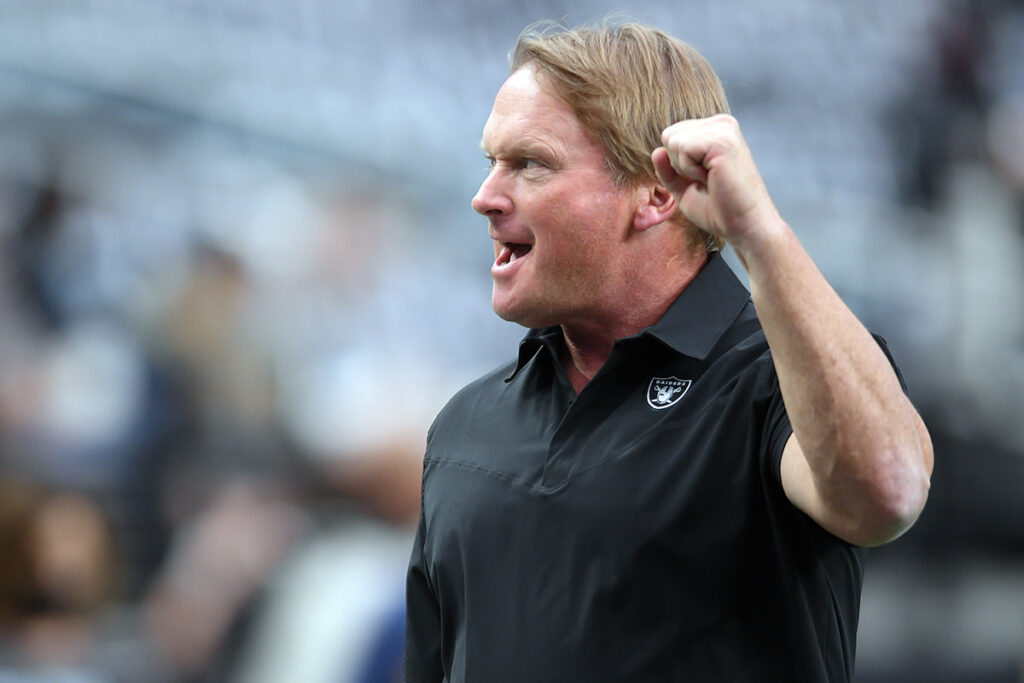After the Nevada Supreme Court rejected Jon Gruden’s request for reconsideration of the venue of his lawsuit against the NFL, the ongoing legal drama between the two has made headlines once more. Gruden and the larger sports governance and athlete contract landscape will be greatly impacted by this case, which revolves around claims of contract interference and conspiracy.
The lawsuit is historical context
The former head coach of the Las Vegas Raiders, Jon Gruden, resigned amid an email leak controversy and then sued the NFL. The offensive language in these emails, which were sent between Gruden and former Washington Commanders executive Bruce Allen during his time with ESPN, incited outrage in the public and ultimately resulted in Gruden’s firing from the Raiders. Gruden claims that the NFL purposefully disclosed only his emails as part of a larger probe into the culture of the league’s workplace, severely harming his reputation and future employment opportunities.
Legal Techniques and Court Cases
The main point of contention in this case is whether Gruden’s case should be heard in public court or, in accordance with the NFL constitution, through private arbitration. At first, a judge in Las Vegas found in favor of Gruden, citing evidence that suggested the league intentionally leaked damaging information with specific intent. The Nevada Supreme Court recently ruled that the case should move forward to arbitration presided over by NFL Commissioner Roger Goodell or another appointed arbitrator after the NFL appealed this decision.
Consequences of the Supreme Court’s ruling
There are significant ramifications for the Nevada Supreme Court’s decision to not reevaluate Gruden’s lawsuit is venue. It emphasizes the league’s right to enforce arbitration clauses in coaches’ and players’ contracts, potentially reducing their ability to file complaints against the NFL in public courts. This precedent may have an impact on the future resolution of disputes between sports organizations and employees, potentially favoring internal adjudication procedures overseen by league authorities and arbitration.
Public Response and Press Coverage
The legal battle has attracted a lot of public attention due to discussions about the rights of individuals like Gruden to seek justice for perceived injustices and transparency in sports governance. Gruden’s supporters contend that his career was unfairly ruined by the NFL’s unfair handling of the email scandal. On the other hand, detractors emphasize the league’s right to use arbitration to uphold its reputation and enforce contractual obligations, contending that this process guarantees prompt resolution and upholds the integrity of professional sports.
Prospects for the NFL and Jon Gruden in the Future
Jon Gruden may have to take his case to arbitration, which could raise questions about procedural justice and resultant outcomes. The outcome of this case may establish a standard for the NFL’s handling of related disputes in the future, impacting its policies regarding openness, privacy, and contract disputes. For Gruden personally, the stakes are high as he seeks monetary damages and seeks to restore his professional reputation after decades in the spotlight as both a coach and television analyst.
The NFL and Jon Gruden’s legal battle highlights more general concerns about professional sports governance, accountability, and contractual rights. The case will continue to spark debates regarding the proper distribution of power between leagues and their staff, the effectiveness of arbitration as a dispute resolution process, and the moral obligations of sports leagues regarding the handling of private information. In the end, the result will affect how the NFL views justice and fairness, and it may also have an impact on other aspects of the sports business.
